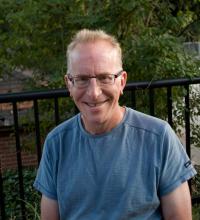Main Content
Eric Hayot’s invitation to design an entire PhD program from the ground up offered me a welcome opportunity, since one of the last things I did in the five years (2006-11) I spent as Director of Graduate Studies in the Department of Romance Studies at UNC–Chapel Hill was to coordinate the restructuring of the our program. We have since implemented this proposal, and the students whom we’ve just accepted for fall 2015 will be the first to enroll in it. While the members of the Graduate Advisory Committee and I worked on the proposal, we were under certain constraints: the basic requirements for a PhD that our Graduate School specified, what we believed intellectual requirements should be, the number of years we could feasibly support students, the number of years we could reasonably expect them to study, and long-standing departmental practice. And when we implemented the program we faced further constraints, mainly stemming from our current instructional and tuition support budgets. In responding to Eric’s invitation, I believed I had a pretty good idea of what a graduate program should do for students. I allowed myself fewer constraints, especially when it came to observing departmental tradition, on the belief that a better integration of exams with coursework may promote more effective learning. And I accorded myself further flexibility by focusing only on my own field, French and Francophone studies, provisionally leaving aside the PhD tracks in Spanish and Italian studies that my department also offers. Under such fantasy circumstances, I proceeded to imagine how a program might fulfill the purposes (as my PowerPoint presentation indicates) of broad grounding in literary history as well as in criticism and theory, interdisciplinarity, and training in language pedagogy, all the while encouraging autonomy in thinking.
My main innovation is a series of reading seminars complementing more traditional coursework. The aim of these seminars is to overcome the sense of division students experience between the three major components of a doctoral program, which are coursework, comprehensive exams, and researching and writing the dissertation. Starting in their second year, students take this year-long seminar, which entails reading from a list strategically drawn up in consultation with one or more advisors on the basis of a longer list that program faculty maintain. The reading, short pieces of writing, and presentations that students undertake will constitute both comprehensive requirements and specialization with the aim, during the third year, of generating a dissertation topic, and the list should be drawn up to this end. During the two years of this seminar, in conjunction with their other coursework students will become familiar with important works of literature, cinema, theory, and criticism in French and Francophone studies and also with historical and philosophical texts pertinent to their increasing focus. Instead of taking exams conceived as an endeavor separate from coursework, the 10- to 15-page papers students write for this seminar during their second year will also be their qualifying exams. Over the course of the third year, they will coordinate the paper topics with the goal of assembling them into a capstone project that they will submit as their prospectus.
With a clearly defined topic, students will spend their fourth and fifth years researching and writing the dissertation. They will receive additional guidance in the form of workshops on conference presentations, grant applications, and the job search, including alternate career paths. In some cases, completing the dissertation will entail a sixth year, the granting of support for which would be decided on a case-by-case basis.
My proposal also considers questions such as the distribution of seminar topics, teaching while in the program, and study abroad. Of necessity in a brief presentation whose explicit purpose is to be imaginative, I leave unaddressed a few enormous key areas, including the details of funding during the five years of the program, exactly how to ensure that students arrive at the proper coverage of the traditional areas of French and Francophone studies, and whether the traditional period model of this field is still viable. As with our restructured PhD program in Romance Studies at UNC, this proposal would only come into being through extensive committee work, some of which would compromise its innovative features, others of which would enhance them.
